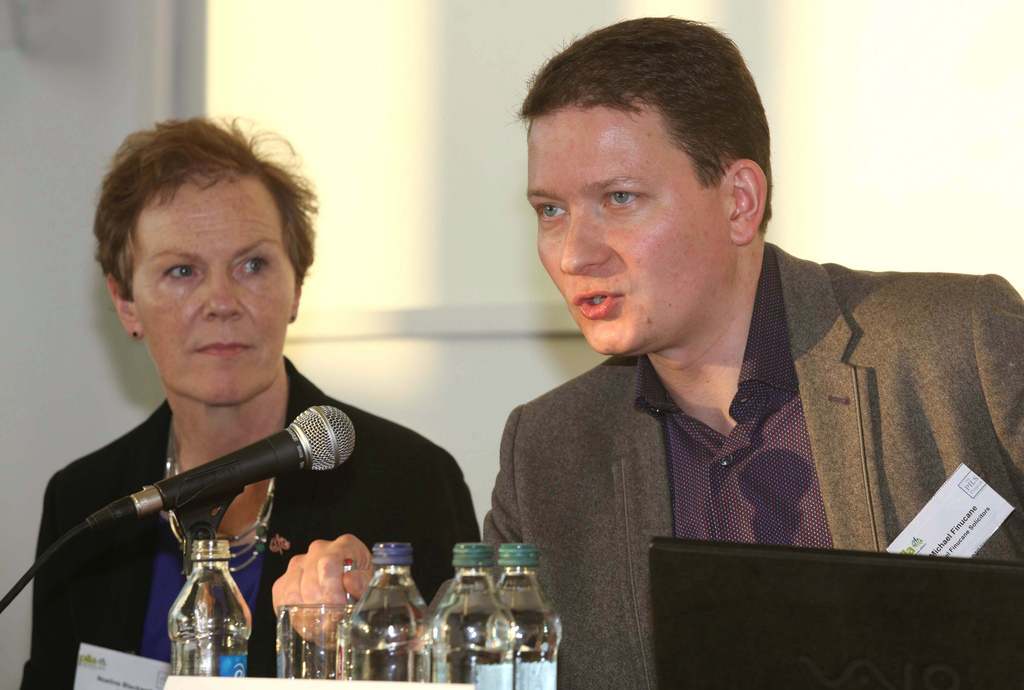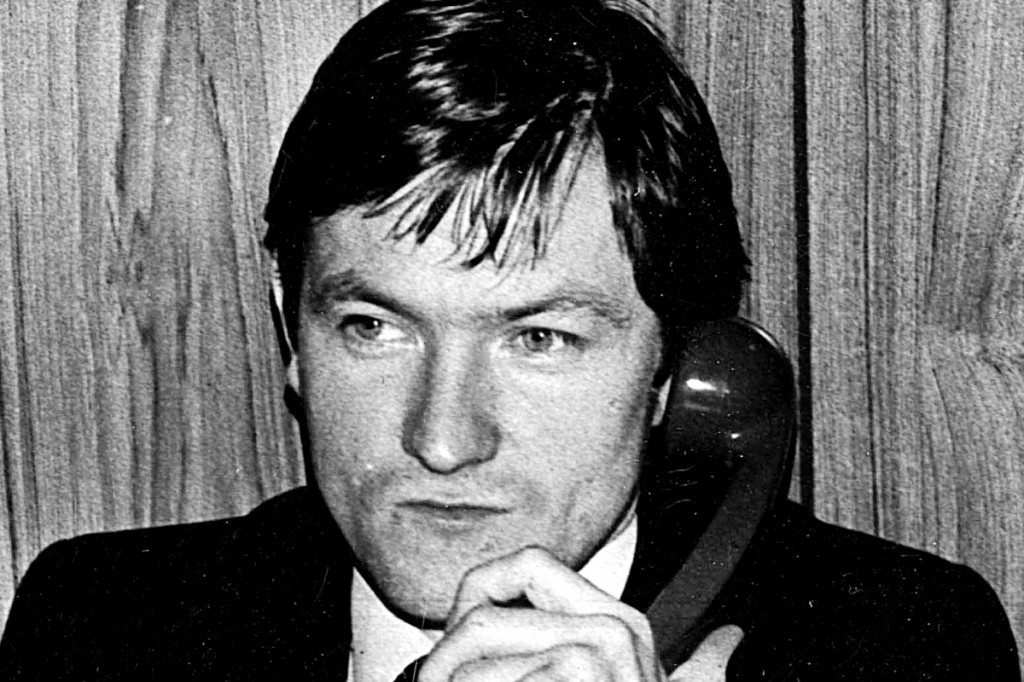‘Amidst the clash of arms the laws are not silent. They may be changed, but they speak the same language in war as in peace.’ These words were chosen by Sir Desmond De Silva to open his review into the murder of Belfast civil rights lawyer Pat Finucane.
On Feburary 12, 1989, as Pat Finucane sat down for Sunday dinner with his wife Geraldine, and three young children, loyalist henchmen from the Ulster Freedom Fighters hammered their way into the house and shot him 14 times in the face and body at their home in north Belfast.
- You can read an interview with Michael Finucane, Pat’s son on www.thejusticegap.com HERE
As a defence solicitor, Pat Finucane had been committed to the principle that all people deserve legal representation in both times of conflict and in peace. Among his clients were prominent members of the IRA, a fact which first prompted Finucane’s family into suspecting state involvement in his death.
His widow, Geraldine, once said: ‘Pat would have represented the people who shot him.’
The Stevens Report in 2003 concluded that there was ‘overwhelming’ evidence of state complicity in Finnucane’s murder, pointing in particular to the Force Research Unit of the British army and the Royal Ulster Constabulary (RUC).
A dark moment
Finucane’s murder has been described as ‘a dark moment in the country’s history’ by cabinet minister, Sir Jeremy Haywood. Prime Minister David Cameron himself said in a speech to Parliament: ‘I profoundly believe that the right thing for the Finucane family, for Northern Ireland and for everyone in the United Kingdom is… for the British Government to do the really important thing, which is to open up and tell the truth about what happened 22 years ago.’
The De Silva report, intended to appease the family’s demand for a full public inquiry, was released in December 2012. Whilst denying the existence of an ‘overarching state conspiracy’ in the murder, De Silva concluded that the State ’actively furthered and facilitated’ the killing of Pat Finucane and that, ‘in the aftermath of the murder, there was a relentless attempt to defeat the ends of justice’ by government forces.’
These findings were ‘accepted unequivocally’ by Cameron, prompting an open apology to the Finucane family.
However, Cameron refused to honour earlier promises made to the family to hold a full public inquiry, insisting that ‘significant changes’ had been made since Finucane’s murder. In a written statement to Parliament, Cameron said: ‘Compliance with human rights has a fundamental place at the centre of activities by the police and intelligence services’ with ‘principles of necessity and proportionality now firmly embedded in the culture.’
The whole truth?
The Finucane family maintain that the De Silva report has not been the fulfillment of open and honest justice; in a related hearing, the family’s lawyer argued: ‘Mrs Finucane knows the name of the person who pulled the trigger. The question is who was pulling the strings? In a 500-page report by Sir Desmond de Silva, consideration of the government’s role takes up five pages.’
Commenting on the review, Geraldine Finucane, added: ‘At every turn, dead witnesses have been blamed and defunct agencies found wanting. Serving personnel and active state departments appear to have been excused. The dirt has been swept under the carpet without any serious attempt to lift the lid on what really happened to Pat and so many others.’
At an event commemorating the anniversary of Pat Finucane’s death last month, Peter Madden, Finucane’s former law partner, criticised the transparency of the De Silva report, its failure to authenticate evidence, and its furnishing of ‘snippets and footnotes’ to justify significant conclusions about state culpability. This painted only a partial picture that was ‘not anywhere near an account of the truth,’ claims Madden.
‘There is so much information and misinformation in the public domain about Pat’s murder. There has to be public clarification. It can’t be allowed to be swept under the carpet by Cameron and De Silva.’
Peter Madden
Madden supports the call for a full public inquiry ‘where all interested parties would be entitled to examine all the documentation, as well as cross-examine relevant witnesses. None of that happened during the de Silva process’.
In May 2013, the failure to hold a public inquiry into Pat Finucane’s murder was cited by the UN Committee Against Torture as one of several reasons why the British government was denied a ‘clean bill of health’ regarding fulfilment of its obligations under international law.
Even US Congress has expressed stark criticism of the PM’s decision to renege on his pledge to hold an inquiry. Republican chairman of a Congressional committee, Chris Smith, accused the British government of being guilty of a ‘massive injustice’ by protecting ‘those responsible for the murder’. He branded the failure to hold the promised public inquiry ‘a glaring, public breach of faith’.
Promises
In an apparent breakthrough last month, shadow Secretary of State, Ivan Lewis, gave the Finucane family a ‘cast-iron guarantee’ that a public inquiry into Pat Finucane’s killing would finally take place under a Labour government.
However, doubts have been raised as to whether any inquiry would be curtailed by Restriction Notices under the Inquiries Act 2005 which would allow ministers to block key evidence from being considered.
Speaking to www.thejusticegap.com, Michael Finucane, son of Pat and a human rights lawyer, said that he was ‘very heartened’ by Lewis’ promise. ‘I very much hope the Labour Party wins the election so it can follow through on the commitment when in government’.
Michael Finucane highlights the emergence of a recent precedent for inquiries to be held without the use of restriction notices: ‘It seems there is a template that my family could support.’

Michel Finucane
Lawyers in the firing line
In 1989 Douglas Hogg, then junior home office minister, told the House of Commons that there were solicitors in Northern Ireland were ‘unduly sympathetic to the cause of the IRA.’ Later that day, the SDLP’s Seamus Mallon issued a warning: ‘I have no doubt that there are lawyers walking the streets or driving on the roads of the north of Ireland who have become targets for assassins’ bullets as a result of the statement that has been made tonight.’
Finucane was shot days later.
How extraordinary then, noted the Guardian this week, that ‘the boundary between another human rights lawyer and his controversial clients is being blurred’. Michael Finucane condemns as ‘deplorable’ the threats to fellow human rights lawyer Phil Shiner.
Shiner’s ground-breaking but controversial work on behalf of Iraqi civilians led to both the Al-Sweady and Baba Mousa inquiries and, in doing so, confirming the existence of illegal torture methods. Whilst a hate figure in certain sections of the press, he has been widely celebrated by lawyers and campaigners (here). His work prompted the International Criminal Court to announce it would launch a preliminary examination of claims into war crimes committed by British troops after the invasion of Iraq.
The Law Society has previously written to the chief constable of the West Midlands to call for the lawyer’s protection following death threats. ‘Let’s give this shyster a shiner,’ gleefully reported Richard Littlewood in the Daily Mail upon learning that the Ministry of Defence was planning to sue Shiner ‘on the orders of the PM’.
Having proved himself a perpetual thorn in the government’s side, Shiner is now facing the prospect of being struck off by the Solicitor Regulation Authority after Mr Cameron ordered officials to prepare a legal case following his most recent inquiry.
The Haldane Society of Socialist Lawyers recently issued a petition in support of Shiner, stating that: ‘Ministerial comments are designed to create a negative atmosphere and as a result place lawyers such as Phil Shiner in danger.’ Sign here.
Michael Finucane is shocked at David Cameron’s apparent disregard for the safety of a lawyer upholding the rule of law. ‘No-one should be subjected to threats and intimidation simply for doing their job,’ he says.
‘The work that Phil carries out may be difficult and unpopular but that can never be a justification for attacking him. It is a cornerstone of democracy that lawyers can carry out their duties without fear of reprisal or being subject to intimidation. This treatment of Phil and his family must stop immediately.’
Michael Finucane on Phil Shiner
Accountable security
A landmark report by parliament’s intelligence and security committee (ISC) found yesterday that Britain’s laws governing the intelligence agencies and surveillance require ‘a total overhaul’ to improve transparency, concluding that whilst not illegal, current laws can be construed as providing the agencies with a ‘blank cheque to carry out whatever actives they deem necessary’.
In the face of mounting national security debates, the need for a clear legal framework that defines the limits of security and intelligence powers is more crucial than ever to prevent a culture in which the government zealously scrutinises external threats whilst denying that same scrutiny to its own actions; actions which can prove fatal to citizens as Pat Finucane’s case makes clear.
.



